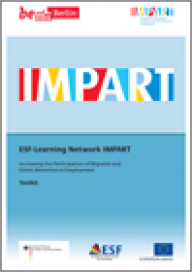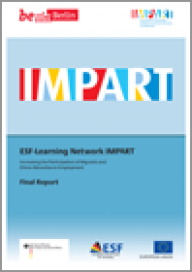Publications
 We author and publish a range of resources to keep you up to date with the latest developments in employment, labour market and human resource policy and practice.
We author and publish a range of resources to keep you up to date with the latest developments in employment, labour market and human resource policy and practice.
All our pdf publications are free to access.
-

Slides: Talent pool case study
Dilys Robinson | Jan 2012 | Institute for Employment StudiesData for the 'Talent pool case study' which Dilys Robinson presented at the HR Network event on 'Strategic talent management/workforce planning' on 26 January 2012.
-

Slides: Analysing and using workforce information
Dilys Robinson | Jan 2012 | Institute for Employment StudiesSlides from Dilys Robinson on 'Analysing and using workforce information' which she presented at the HR Network event on 'Strategic talent management/workforce planning' on 26 January 2012.
-

Slides: Strategic Talent Management and Workforce Planning
Wendy Hirsh | Jan 2012 | Institute for Employment StudiesOpening slides from Wendy Hirsh, Principal Associate at IES, at the HR Network event on 'Strategic Talent Management and Workforce Planning' on 26 January 2012.
-

Increasing the Participation of Migrants and Ethnic Minorities in Employment: Toolkit
Jan 2012 | German Federal Ministry of Labour and Social AffairsThis report containing IES research outlines the toolkit created as part of the IMPART project. The IMPART project aimed investigate how the European Social Fund (ESF) could best support projects aimed at increasing the participation of migrants and ethnic minorities in employment.
-

Increasing the Participation of Migrants and Ethnic Minorities in Employment: Final Report
Jan 2012 | German Federal Ministry of Labour and Social AffairsThis report containing IES research presents the findings from the transnational learning network, IMPART; a group of 12 EU partners which came together to consider how projects which aim to increase the participation of migrants and ethnic minorities in employment can successfully implement and mainstream their good practice.
-

IES Perspectives on the HR Year Ahead 2012
Strength and opportunities
Dec 2011 | Institute for Employment StudiesThis report looks at opportunities for change, whilst ensuring your workforce and managers are in a strong position to embark on them.
-
📄
Commission Staff Working Document: Restructuring in Europe 2011
Broughton A | Dec 2011 | European CommissionThis report gives an overview of the main challenges and considerations for European actors, stakeholders and policymakers in relation to enterprise restructuring, including how this can be carried out in a way that mitigates possible negative consequences for the workforce and the environment in which enterprises operate. It also contains lessons learned from practice around the EU.
-
📄
European Restructuring Monitor Quarterly - 2011, Issue 4
Hurley J, Riso S, Salvatore L, Rinawi M, Broughton A | Dec 2011 | European Foundation for the Improvement of Living and Working ConditionsConsensus forecasts were pointing to slowing growth in the EU during 2012, with some at least indicating a return to recession. Sovereign debt issues in a growing number of Member States – the response to them and anxieties regarding their eventual resolution – were one important contributing factor. The decision of the European Central Bank (ECB) to make available nearly 500 billion euros to the banking system in December 2011 appeared to have bought some time to develop a more lasting solution. However, downgrades of sovereign debt in nine Member States by rating agency Standard & Poor once again underlined the fragility of the common currency. General sentiment remained volatile amid fears of a new second phase of the Great Recession of 2008–9...
-
📄
Social partnership for anticipating change and restructuring
Mutual learning: Finland and the Baltic countries
Broughton A | Dec 2011 | International Labour Organisation (ILO)This is the final report of a project funded by the European Commission and managed by the International Training Centre of the International Labour Organisation, which aimed to examine best practice on anticipating restructuring in Finland, by means of tools to monitor economic and labour market developments and trends, and how far this could be used to help the Baltic States to anticipate restructuring.
-
📄
Evaluation of the ‘Salus & Co.’ captures and cartoon strips
Sinclair A, Oakley J, Hicks B, Tyers C | Nov 2011 | Institute for Employment StudiesThis report presents the findings of a project commissioned by the European Agency for Safety and Health at Work (EU-OSHA) to evaluate 25 of its ‘Salus & Co.’ strips and captures, designed to communicate messages about occupational safety and health without the need for text. IES was commissioned to conduct an external evaluation to ensure that the ‘Salus & Co.’ messages underpinning the images were understood by different types of target audiences at EU level. The methodology for the evaluation included two main elements: an online survey of OSH-mail participants and face-to-face cognitive interviews with 15 university staff and students.
